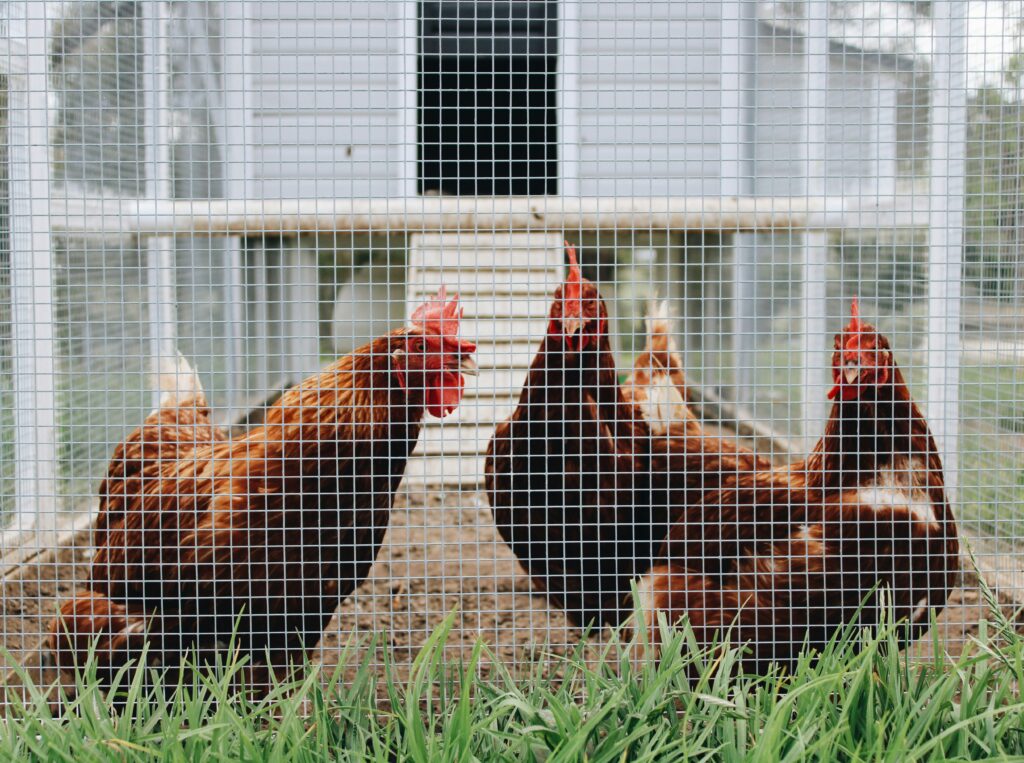Raising chickens in your backyard offers a delightful array of benefits, from the joy of fresh eggs every morning to a natural way of reducing household waste. However, before you embark on this rewarding journey, it’s crucial to understand the legalities involved, especially in Belgium, where specific rules apply.

Understanding the basics: less than 30 chickens
If your chicken coop houses fewer than 30 birds, you’re generally exempt from needing to file a request or declaration with your local municipality. However, the situation with roosters can be more complex, as regulations vary from one locality to another. It’s advisable to check with local authorities, as the crowing of roosters in the early morning might disturb your neighbors.
Chicken coop regulations
Under Belgian law, constructing a shelter for poultry that does not exceed 30 birds does not require a planning permit. However, a simple urbanistic declaration must be made to the municipality, provided the shelter meets certain standards. These include a maximum area of 15 m², maintaining a distance of 3 meters from adjoining boundaries, 20 meters from neighboring houses, and ensuring the height does not exceed 2.50 meters at the eaves and 3.50 meters at the ridge.
Animal welfare considerations
Adhering to animal welfare regulations is equally important. This encompasses aspects such as nutrition, care, and living space for the chickens. Key requirements include:
– Providing an outdoor space of 2 m² per chicken and 0.5 m² inside the coop.
– Regular feeding with grains (like corn) in addition to grass and organic waste.
– Regular cleaning of the coop to prevent vermin, odors, and diseases.
– Ensuring the coop protects its inhabitants from heat, humidity, and drafts.
Expanding beyond the basics
While these are the fundamental legal requirements, there’s much more to consider when setting up a chicken coop. Let’s delve into some additional aspects that can enhance your experience and ensure the well-being of your feathered friends.
Choosing the right breed
Selecting the right breed of chicken is crucial. Consider factors like climate adaptability, egg-laying capacity, and temperament. Some breeds are more suited to colder climates, while others thrive in milder conditions.
Feeding and nutrition
A balanced diet is vital for the health of your chickens. While they will enjoy pecking at grass and kitchen scraps, ensure they have a steady supply of high-quality poultry feed. This feed should be rich in protein, vitamins, and minerals to support their health and egg production.
Health and disease prevention
Regular health checks are essential. Look out for signs of illness or distress in your chickens, such as changes in eating habits, lethargy, or abnormal droppings. Vaccinations and parasite control are also critical components of chicken care.
Environmental enrichment
Chickens are curious and active animals. Providing environmental enrichment, such as perches, dust baths, and varied terrain, can significantly improve their quality of life. This not only keeps them physically active but also mentally stimulated.
Community engagement
Engaging with a community of fellow chicken enthusiasts can be incredibly beneficial. Join local clubs or online forums to share tips, seek advice, and connect with others who share your interest in poultry keeping.
Conclusion
Setting up a chicken coop in your backyard can be a fulfilling endeavor, offering fresh eggs and a unique way to reduce household waste. However, it’s essential to comply with legal requirements and prioritize the welfare of your chickens. By understanding and adhering to these guidelines, you can ensure a healthy and happy environment for your feathered friends.

 Open Immovlan
Open Immovlan